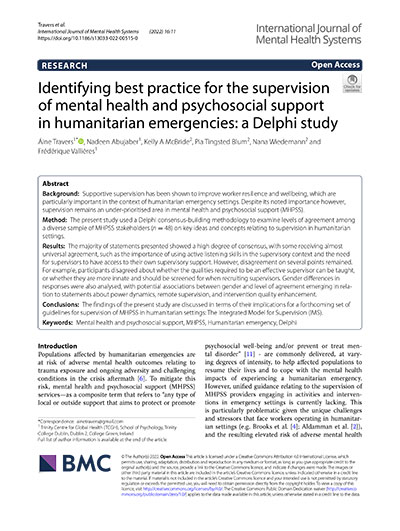Supportive supervision has been shown to improve worker resilience and wellbeing, which are particularly important in the context of humanitarian emergency settings. Despite its noted importance however, supervision remains an under-prioritised area in mental health and psychosocial support (MHPSS).
The present study used a Delphi consensus-building methodology to examine levels of agreement among a diverse sample of MHPSS stakeholders (n = 48) on key ideas and concepts relating to supervision in humanitarian settings.
The majority of statements presented showed a high degree of consensus, with some receiving almost universal agreement, such as the importance of using active listening skills in the supervisory context and the need for supervisors to have access to their own supervisory support. However, disagreement on several points remained. For example, participants disagreed about whether the qualities required to be an effective supervisor can be taught, or whether they are more innate and should be screened for when recruiting supervisors. Gender differences in responses were also analysed, with potential associations between gender and level of agreement emerging in relation to statements about power dynamics, remote supervision, and intervention quality enhancement.
The findings of the present study are discussed in terms of their implications for a forthcoming set of guidelines for supervision of MHPSS in humanitarian settings: The Integrated Model for Supervision (IMS).






